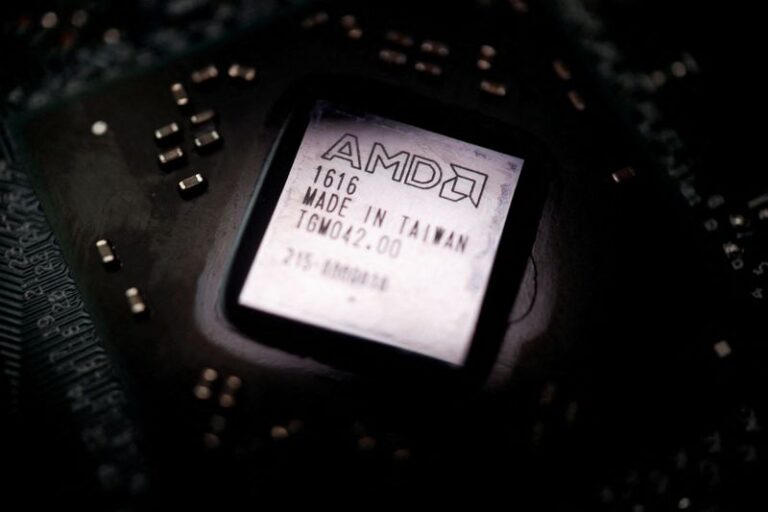[Reuters]- Chip equipment maker ASML has reported a drop in annual sales due to weak demand for non-AI chips, while reports said the Biden administration is considering restricting sales of advanced artificial intelligence processors to some countries. Semiconductor stocks in the U.S. and Asia fell after the company revised its forecasts downward.
AI chip giant Nvidia, which briefly overtook Apple the previous day to become the world’s most valuable company, fell 4.5%, losing about $158 billion in market capitalization, widening the gap with Apple’s market cap of $3.56 trillion. did.
Other semiconductor companies, including AMD, Intel, Arm, Broadcom and Micron, were down 3.2% to 5% at Tuesday’s close, sending the Philadelphia SE Semiconductor Index down nearly 5% and weighing on the Nasdaq index. .
ASML’s U.S.-listed stock has been weighed down by the Dutch company’s apparent error in announcing earnings ahead of schedule, sluggish bookings and downward revisions to forecasts, slowing recovery in chip demand outside of the AI field. The stock closed 16% lower on the day.
Despite surging demand for AI-related chips, logic chip makers are delaying orders, memory chip makers are only planning to add “limited” new capacity, and other areas of the semiconductor market remain weak. The company reported that sales were weaker than expected.
Deren Nathan, head of equity research at Hargreaves Lansdown, said: “While ASML’s fat finger error itself is not a cause for concern, the content of the announcement was not reassuring to investors.” .
Shares of Asian chipmakers that are ASML customers also fell on Wednesday, with Taiwan Semiconductor Manufacturing Co. down 1.9%, Samsung Electronics Co. down 2.1% and SK Hynix Co. down 2.5%.
Earlier this month, Samsung Electronics warned that its third-quarter profit would be lower than market expectations as it was unable to capitalize on demand for its artificial intelligence chips. By contrast, Samsung’s rival TSMC, which counts AI leader Nvidia as one of its key customers, is expected to report a 40% increase in third-quarter profit on Thursday.
Separately, Bloomberg News reported on Monday that US authorities are considering introducing caps on licenses to export AI chips to certain countries, primarily in the Persian Gulf region, citing national security concerns. It was reported that
The US government is increasingly concerned that the Middle East could serve as a route for China to obtain advanced US chips, which are prohibited from being shipped directly to Asian countries.
Danny Hewson, head of financial analysis at AJ Bell, said: “The AI revolution is expected to play a huge role in increasing productivity and enabling other technological advances, and will help the U.S. maintain its lead. It’s not surprising that we want to do the best we can.”
(Reporting by Akash Sriram and Jaspreet Singh in Bengaluru; Additional reporting by Hyunju Jin in Seoul; Editing by Tasim Zahid and Christopher Cushing)


